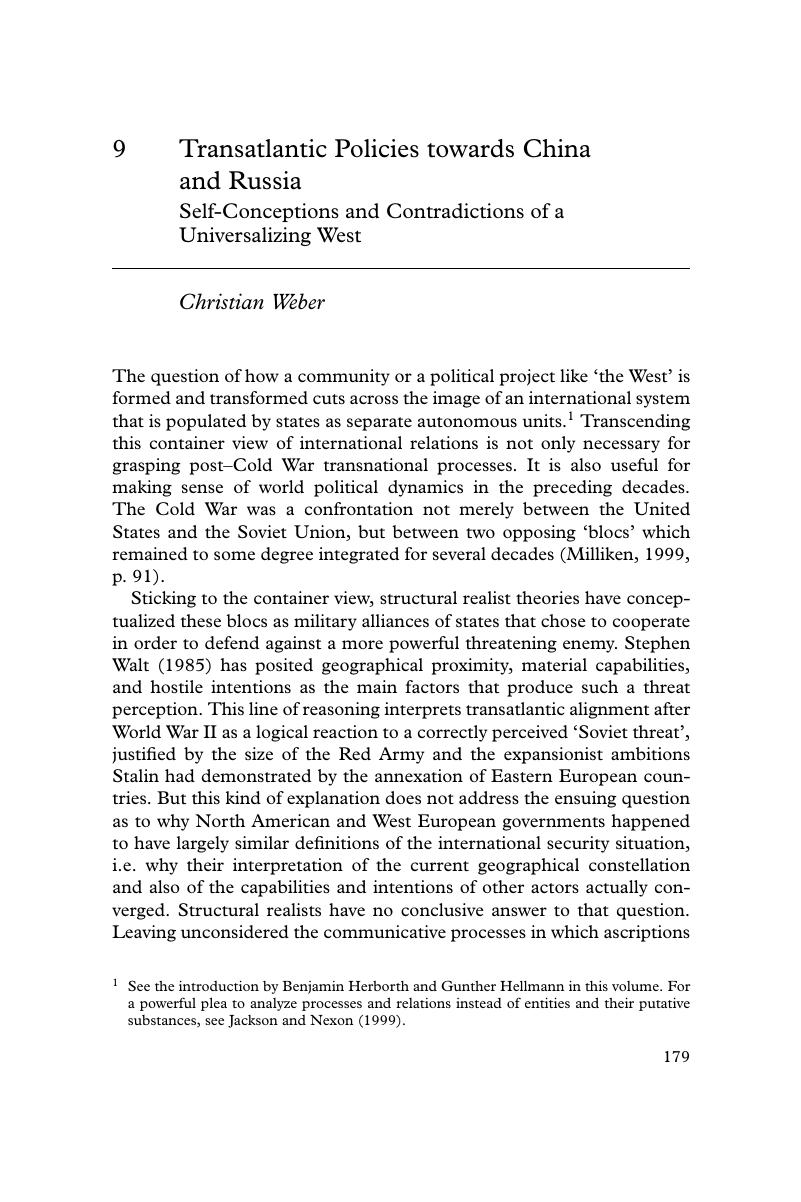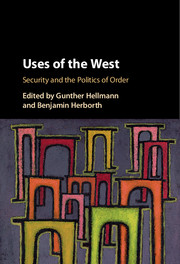Book contents
- Uses of the West
- Uses of the West
- Copyright page
- Contents
- Figures
- Tables
- Notes on Contributors
- 1 Introduction
- Part I Theorizing the West
- Part II The West in Use
- 6 Aesthetics, Power, and Insecurity
- 7 Everyday Exceptions
- 8 Re-constituting NATO
- 9 Transatlantic Policies towards China and Russia
- 10 Russia Becoming Russia
- Part III Transformations of the Western Institutional Order
- Index
- References
9 - Transatlantic Policies towards China and Russia
Self-Conceptions and Contradictions of a Universalizing West
from Part II - The West in Use
Published online by Cambridge University Press: 20 January 2017
- Uses of the West
- Uses of the West
- Copyright page
- Contents
- Figures
- Tables
- Notes on Contributors
- 1 Introduction
- Part I Theorizing the West
- Part II The West in Use
- 6 Aesthetics, Power, and Insecurity
- 7 Everyday Exceptions
- 8 Re-constituting NATO
- 9 Transatlantic Policies towards China and Russia
- 10 Russia Becoming Russia
- Part III Transformations of the Western Institutional Order
- Index
- References
Summary

- Type
- Chapter
- Information
- Uses of 'the West'Security and the Politics of Order, pp. 179 - 202Publisher: Cambridge University PressPrint publication year: 2016



